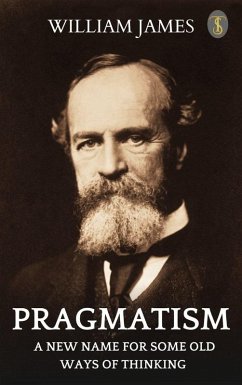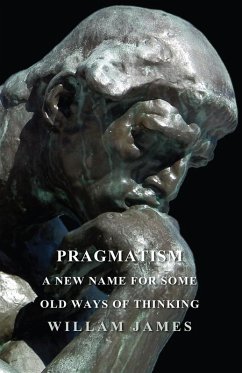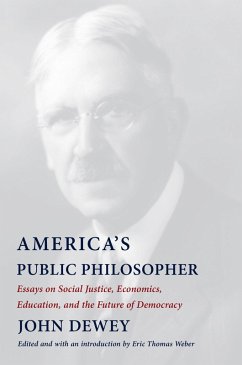
Pragmatism: A New Name for Some Old Ways of Thinking (eBook, ePUB)
Enriched edition. A Philosophical Exploration of Practical Thinking
Kommentar: Stanhope, Bennett / Redaktion: Good Press
Sofort per Download lieferbar
0,49 €
inkl. MwSt.
Weitere Ausgaben:

PAYBACK Punkte
0 °P sammeln!
In "Pragmatism: A New Name for Some Old Ways of Thinking," William James eloquently articulates the philosophical doctrine of pragmatism, positing that the truth of ideas is determined by their practical consequences and utility. This work is characterized by its accessible prose and conversational tone, setting it apart from the dense philosophical treatises of its time. James contextualizes his arguments by engaging with historical figures like Peirce and Dewey, while also addressing the pragmatic undercurrents found in American transcendentalism. As he navigates complex concepts, James unde...
In "Pragmatism: A New Name for Some Old Ways of Thinking," William James eloquently articulates the philosophical doctrine of pragmatism, positing that the truth of ideas is determined by their practical consequences and utility. This work is characterized by its accessible prose and conversational tone, setting it apart from the dense philosophical treatises of its time. James contextualizes his arguments by engaging with historical figures like Peirce and Dewey, while also addressing the pragmatic undercurrents found in American transcendentalism. As he navigates complex concepts, James underscores the importance of doubt, belief, and the interplay between theories and real-world applications, rendering the text both a philosophical inquiry and a manifesto for innovative thought. William James, a prominent figure in psychology and philosophy, emerged from a family rich in intellectual tradition. His background'-marked by struggles with mental health and an interest in the intersection of human experience and philosophical inquiry'-shapes the urgent practicality of his work. Influenced by the dynamism of American culture and its diverse intellectual currents, he sought to formulate a philosophy that embraced complexity and acknowledged the fluid nature of truth. I highly recommend this groundbreaking book to anyone interested in philosophy, psychology, or the complexities of human experience. James's invitations to reconsider the relationship between belief and action are as relevant today as they were in the early 20th century. This text not only opens pathways to critical thinking but also encourages readers to embrace a perspective that values the intersection of ideas and everyday life. In this enriched edition, we have carefully created added value for your reading experience: - A succinct Introduction situates the work's timeless appeal and themes. - The Synopsis outlines the central plot, highlighting key developments without spoiling critical twists. - A detailed Historical Context immerses you in the era's events and influences that shaped the writing. - An Author Biography reveals milestones in the author's life, illuminating the personal insights behind the text. - A thorough Analysis dissects symbols, motifs, and character arcs to unearth underlying meanings. - Reflection questions prompt you to engage personally with the work's messages, connecting them to modern life. - Hand-picked Memorable Quotes shine a spotlight on moments of literary brilliance. - Interactive footnotes clarify unusual references, historical allusions, and archaic phrases for an effortless, more informed read.
Dieser Download kann aus rechtlichen Gründen nur mit Rechnungsadresse in A, B, BG, CY, CZ, D, DK, EW, E, FIN, F, GR, H, IRL, I, LT, L, LR, M, NL, PL, P, R, S, SLO, SK ausgeliefert werden.













